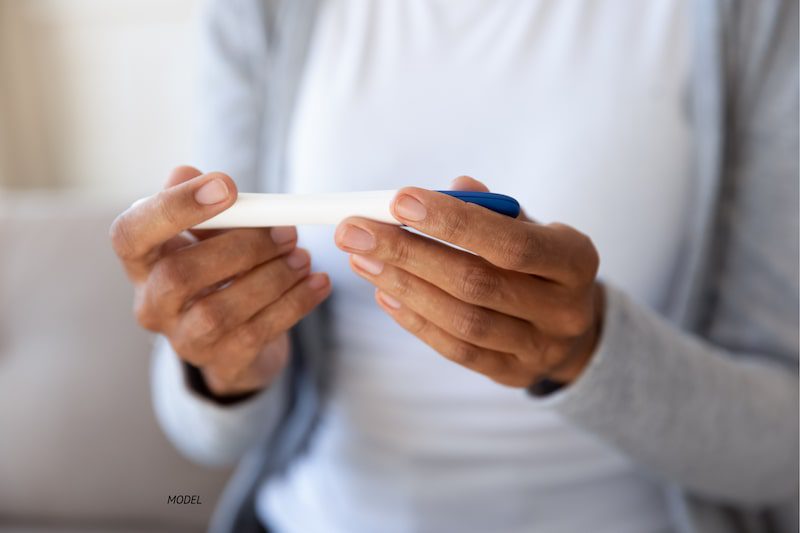October 5, 2025
What Does Diminished Ovarian Reserve Mean?

2 Minute Read:
Ovarian reserve refers to the quality and quantity of the eggs left in a woman’s ovaries.
Diminished ovarian reserve often results in more complications when trying to conceive based on the lower count or quality of eggs in the ovaries.

The issue can occur due to aging, genetic defects, injuries, illness, and aggressive medical treatments which damage the reproductive system. However, it is important to note that diminished ovarian reserve occurs without any apparent cause in some cases.
Tests for Diminished Ovarian Reserve
A diminished ovarian reserve doesn't come with many noticeable symptoms. Those with the condition can experience difficulty getting pregnant, shorter menstrual cycles, absent or late menstrual periods, miscarriage, and heavy menstrual flows.
Unfortunately, many of these symptoms are also associated with other female reproductive health issues, and, sometimes, symptoms might not occur at all. This means that several tests have to be done to determine if a patient has diminished ovarian reserve.
Examples of such tests include transvaginal ultrasound and blood tests (AMH). The ultrasound test involves using an intravaginal probe to get close to the ovaries and count the follicles. On the other hand, an AMH test involves taking a blood sample and testing it to determine the state of the ovarian reserve.
https://www.youtube.com/watch?v=0t2o0H1EMAo
Treatment for Diminished Ovarian Reserve
Patients with a diminished ovarian reserve can get pregnant with treatment.
However, an early diagnosis is ideal for improving the chance of conceiving. Treating the condition often involves using supplements, such as dehydroepiandrosterone (DHEA), which is a mild androgen.
Your physician will be able to determine the correct supplement for you.
Alternatively, if your diminished ovarian reserve is diagnosed early, your doctor might suggest freezing healthy eggs for future use or starting IVF immediately.
If there are not enough healthy eggs that can be obtained, you might be advised to use a donor egg to get pregnant. This will involve retrieving a healthy egg from a donor and fertilizing it through IVF. The fertilized egg will then be implanted in your uterus or even the uterus of a surrogate.
Interested in Learning More?
If you are struggling to get pregnant, a diminished ovarian reserve may be a contributing factor.
The good news is that if the issue is diagnosed early, it can be treated in several ways. The treatment you pursue will obviously depend on your situation, and therefore, it is imperative for you to take your time to understand what options you have.
If you are looking for a reliable fertility clinic to help you with diagnosing and treating diminished ovarian reserve, Reproductive Fertility is your best bet. Get in touch with us today for more information about our fertility center and the services we offer.